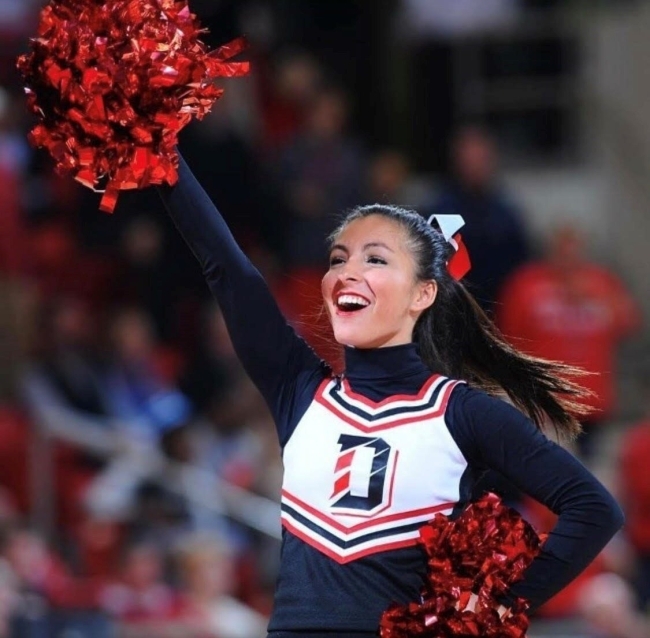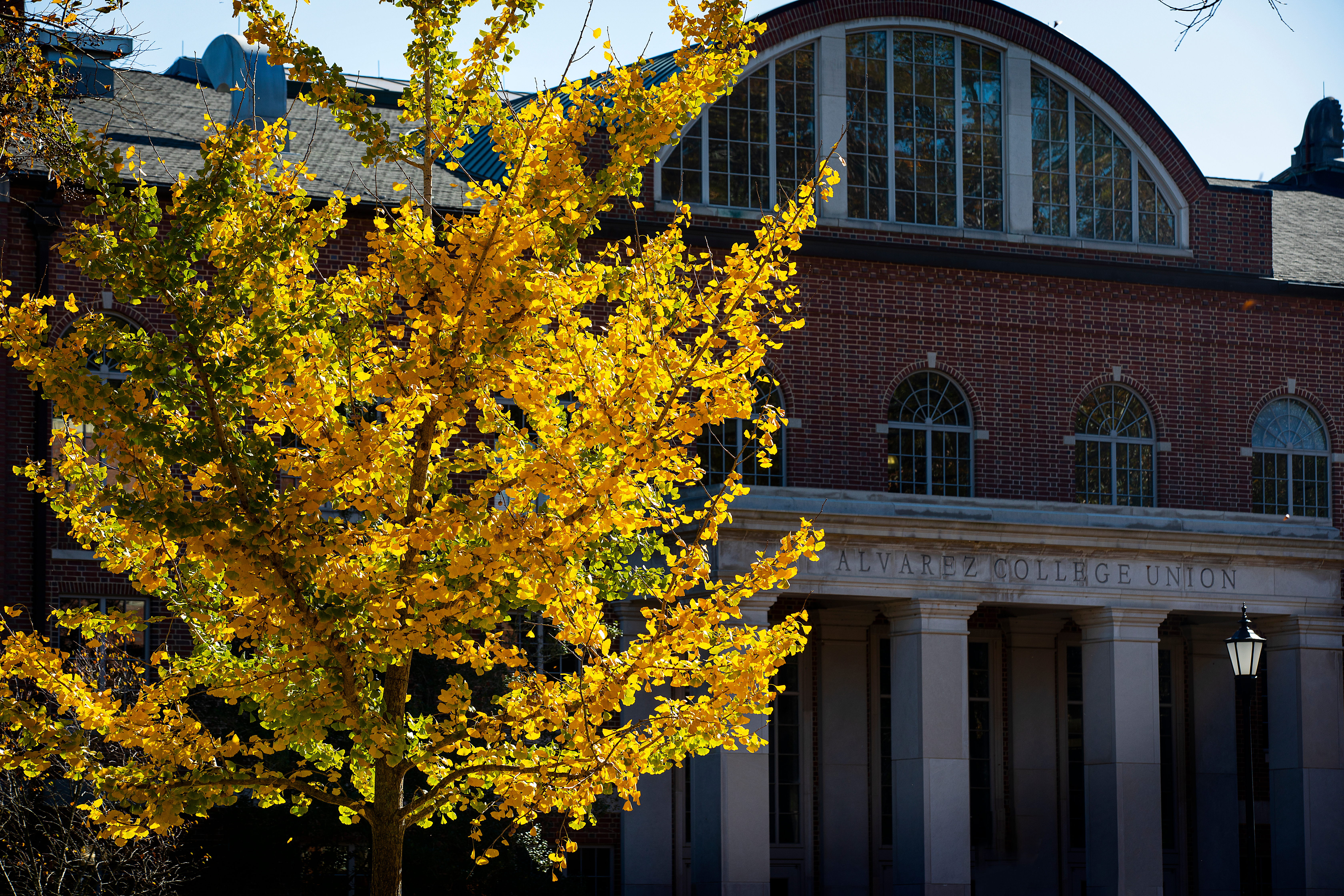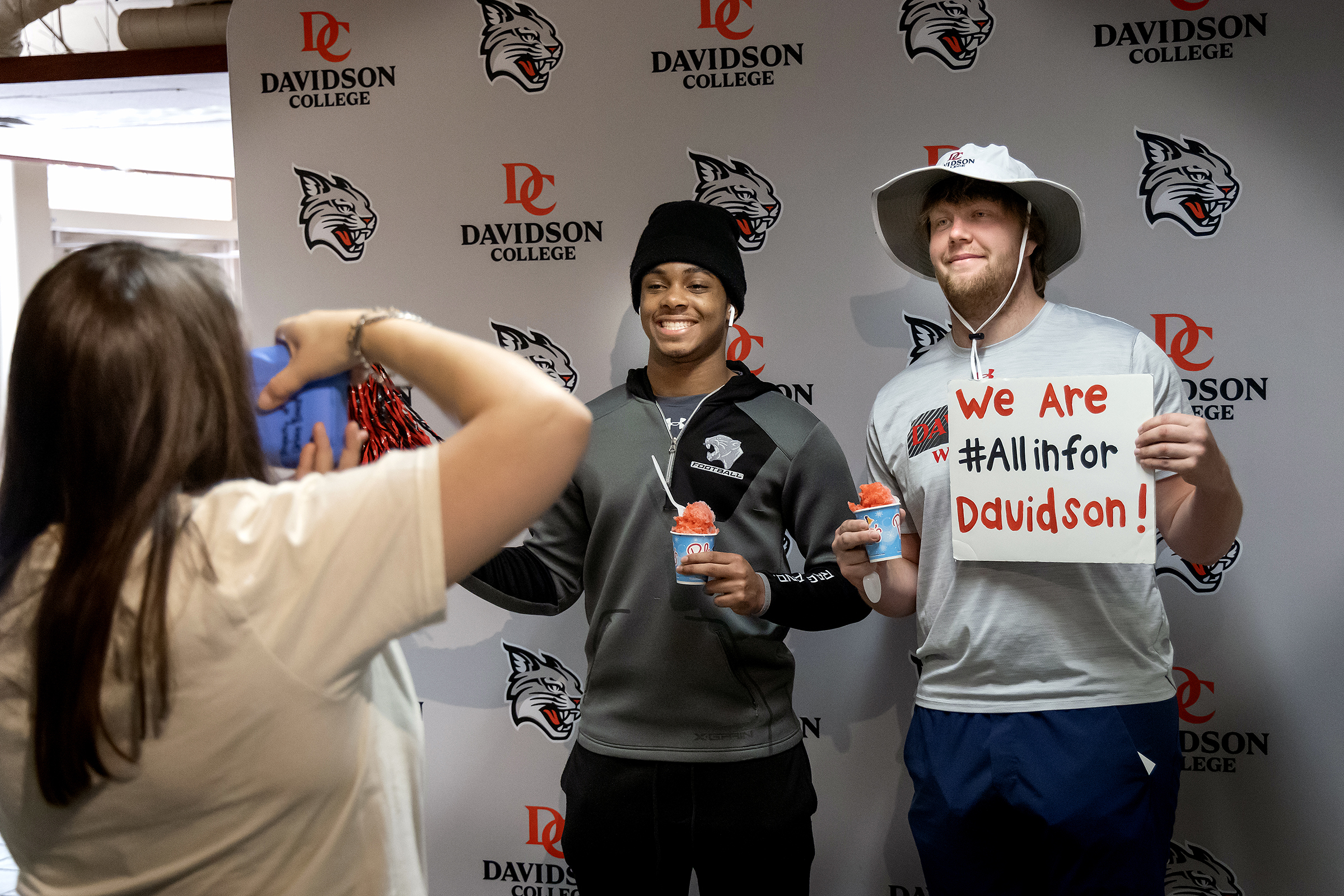Seeking Humane Immigration Solutions: Itziri Gonzalez-Barcenas ’19 Named Schwarzman Scholar
January 9, 2024
- Author
- Mary Elizabeth DeAngelis

Inspired by her parents’ struggles, Itziri Gonzalez-Barcenas ’19 hopes to use the insights she gains as a Schwarzman Scholar to help migrants around the world.
As a child, Itziri Gonzalez-Barcenas ’19 enjoyed inspiring stories about immigrants who started with nothing, worked hard and achieved their American dream.
As she got older, she realized how often that doesn’t happen.
The undocumented daughter of undocumented immigrants, she’s seen too many extremely hard-working people, including her parents, not living such dreams. They struggle to keep families afloat, toiling away — sometimes exploited — on construction sites and farms, in factories, restaurants and hotels.
The United States, a country founded and fueled by the contributions of immigrants, has a troubled relationship with immigration policy. Polarized politicians continuously end up deadlocked and doing little to handle the vast numbers of people from other places who are desperate to live here.
European countries like France, Germany and Italy also have sharply polarized views about migration, which often stems from refugees escaping famine, war and violence. Migration protocols have become stricter due to a steady rise of the far-right movement across Europe. The war in Ukraine and the COVID-19 pandemic caused a spike in living costs, distrust for mainstream political leaders and support for those with hardline views on immigration.
Gonzalez-Barcenas, who moved to the U.S. from Mexico as a 5-year-old, believes that humane and sensible solutions exist. She’s made it her life’s goal to find them, as a Davidson College student and through post-graduate education, research, writing and advocacy. Her quest just got a big boost: She’s been selected for the Schwarzman Scholars Class of 2025.
The coveted and highly selective program will allow her to spend a year in a fully funded master’s degree program in global affairs at Schwarzman College, Tsinghua University in Beijing. She’ll learn from and network with some of the world’s top educators, economists, political, diplomatic and non-profit leaders.
She’ll listen — and hopes that her experience offers insight others can learn from.
“I’m excited to have so many professors from different institutions offering differing perspectives,” she said. “I have something to say about immigration, and how people deserve to be treated.
“This will help me develop a clear path for what I hope to achieve. I learned at Davidson that when you’re surrounded by passionate people who are committed to making people’s lives better, you become your best self.”

Gonzalez-Barcenas made her mark on campus as a Student Government Association president, advocate and community organizer and more.
Top Program, Top Minds
More than 4,000 candidates applied for slots in the incoming class of 150 Schwarzman Scholars. Class members represent 43 countries and 114 universities. Gonzalez-Barcenas is the third Davidson candidate named as a Schwarzman Scholar since 2019.
Steven A. Schwarzman, chairman and CEO of The Blackstone Group, created Schwarzman Scholars to promote better relations and understanding between China and other countries. Scholars build on leadership skills through classes, lectures, and networking with experts.
Members of the Schwarzman Scholars Class of 2025 range from an Emmy nominee to entrepreneurs to non-profit founders.
“The caliber of this incoming class and their potential fills me with optimism for the future,” Schwarzman said. “This year’s selected Scholars are keenly interested in learning about China, which is now more important than ever in this complex geopolitical environment. They are ready to engage thoughtfully with global issues and eager to make a positive impact on the world.”
It’s a highly competitive application process, with interviews conducted by panels of leaders in multiple fields. Scholars are selected based on leadership, intellect, and character.
“The Schwarzman Scholars program immediately staked its position among the world’s most prestigious international fellowships,” said Shelley Rigger, Brown Professor of Asian Studies, vice president for academic affairs and dean of the faculty at Davidson.
Rigger, an internationally renowned expert on Taiwan, spoke earlier this year to a group of Schwarzman Scholars in Washington, D.C.
“It was like being surrounded by the 30 most outgoing, intelligent, likeable people you’ve ever met,” Rigger said. “The program in Beijing is fantastic, and the connections Schwarzman Scholars make there are invaluable. The fact that Davidson has had three successful applicants since the program started is an amazing accomplishment.”
Davidson professors say Gonzalez-Barcenas is an excellent choice.
“Itziri has always shined brightly in both her academics and advocacy efforts through her perseverance and goals,” Amanda Martinez, an associate professor of communications and sociology said. “A student like Itziri is someone you just know is going to make a big difference in the world. Through the culmination of Itziri’s outstanding breadth and depth of experiences beyond her double major in college and graduating with honors, her life’s purpose shines clearly through her leadership roles: to help those who face inhumane and dire conditions.”
Leader, counselor, role model
Gonzalez-Barcenas spent most of her life in a rural Southern area, where her parents worked long days and weeks, sending money back to Mexico to help relatives and to build a house there. Her four younger siblings were born in the U.S. and are American citizens. She was a recipient of the Deferred Action for Childhood Arrivals (DACA) program and hoped to establish a permanent path to citizenship.
She excelled in school and was awarded a full Golden Door Scholarship (GDS) to Davidson. The scholarship helps DACA and undocumented students meet their financial needs to attend college. Through mentorship, intentional programming, and a supportive community, GDS propelled Gonzalez-Barcenas to continue dreaming big.
At Davidson, she majored in Political Science and Africana Studies and served as president of the Student Government Association (SGA). In 2019, she worked with four other students to bring the Collegiate Alliance for Immigration Reform Conference to Davidson, making it the first college in the South to host the event. After graduation, she spent a year as a college and career counselor at a Title 1 public high school helping low-income students, undocumented students and students of color navigate their post-high school options.
“It would be easy to write pages about her accomplishments as a brilliant scholar and student, as a courageous SGA president and DACA student, as a passionate advocate and community organizer,” said Caroline Fache, professor of French and Francophone Studies. “But more so, I have learned so much from Itziri, from her rigor to her composure to her desire to learn everything she could and expand her worldview.”
And on a more personal note, “She was more than a student to me, she also took care of my older daughter, Jaden,” Fache said. “I love that Jaden could look up to Itziri and have such a great role model next to her.”
Fueled by Struggles
Fache says that she tried — unsuccessfully — to convince Gonzalez-Barcenas to take French at Davidson. So Fache was delighted when she recently spoke with her and discovered that, after two and a half years of living in France, she now speaks French fluently.
Her journey to France started when she couldn’t study abroad because of her immigration status, so she instead spent a semester in a domestic exchange program at Howard University in Washington, D.C. She met and fell in love with Brice Rossette, a French citizen and international exchange student in Howard’s MBA program.
With visa issues for both looming amid Trump administration policies and COVID-19, the couple married in July of 2020 and temporarily moved back to her Mexican birthplace to secure her French visa. They spent a year there before moving to Paris, where she now has resident status.
In Paris, she earned a master’s degree in human rights and humanitarian action from the prestigious Institut d'études politiques de Paris, or Sciences Po Paris. She’s currently a project manager at the French National Centre for Scientific Research studying the impact of migration through a gendered lens with three case studies: Mexico, Morocco and Malaysia.
She hopes her education, experience and the Schwarzman program will help her move into an international diplomacy role with a focus on helping migrants around the world. That could take many forms, from changing immigration laws to supporting peace-keeping and anti-poverty initiatives.
Despite their efforts, her parents have never achieved financial security, especially since the pandemic, when lost job hours and health issues wiped out nearly everything they had. The threat of deportation never leaves, nor does the belief that their circumstances would be even worse in Mexico.
“It’s such a precarious situation,” she said. “As hard as they’ve worked their entire lives, they’ll never be able to retire.”
She likes Paris and the sense of freedom she never felt in the U.S. She’s looking forward to living in China and learning more about its history, culture and importance in world affairs. But she misses her parents, siblings, young nephew and a new baby niece she’s never met. Now that she’s left the U.S., she doesn’t know when — or if — she’ll be able to return.
Her determination, inspired by her family’s struggles, grows.
“It fueled my desire to study human rights. There are a lot of people, not just me and my family, but all around the world who experience really terrible situations that they do not deserve to go through,” she said. “How can someone like me, how can our society help propel them to get the opportunity to have a dignified life?
“At the bare minimum, everyone deserves to have that.”
Davidson's Office of Fellowships supports current students and alumni applying for the Schwarzman Scholars Program. For more information about Schwarzman Scholars and the Office of Fellowships, visit www.davidson.edu/fellowships.



